Stay in the know on all smart updates of your favorite topics.
Wandelend vergaderen (=weeting) met de #UrbanNatureAmsterdam kaart
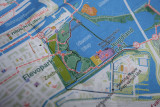
Wandelen in de natuur maakt overleggen productiever, creatiever en gezonder. Waarom niet wandelend vergaderen? Op 24 september nodigen we jullie uit om wandelend een onbekende te ontmoeten. Dit event vindt plaats in het kader van De week van het Groene Kapitaal.
Op de eerste groenblauwe kaart van Amsterdam staan er maar liefst 7 ‘weeting’ routes met als doel om mensen die in Amsterdam werken te inspireren om hun werkvergaderingen naar buiten te verplaatsen.
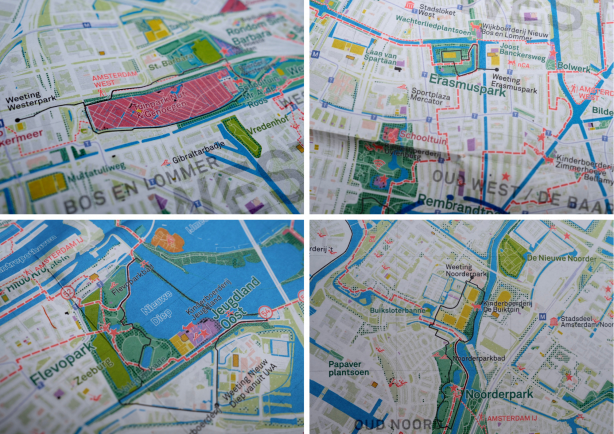
Meer informatie over weetings: <https://www.weeting.nl/uitleg/>
Meer informatie over de groenblauwe kaart: <https://www.urbannature.amsterdam>
Lancering LaBGreen De Bretten Ontwikkelboek - livestream

Bewoners, ondernemers en bezoekers hebben het afgelopen jaar samen met de gemeente onderzocht hoe De Bretten er in 2030 uit kan zien, onder de naam LaBGreen De Bretten. Een boek vol ideeën voor De Bretten, het prachtige stuk natuur tussen Sloterdijk en Halfweg. Ideeën die over een periode van ruim een jaar zijn opgehaald bij bewoners, bezoekers en ondernemers, voor de komende 10 jaar.
Hun ideeën zijn samengebracht in een boek. In aanwezigheid van de wethouder Marieke van Doorninck en dagelijks bestuurder Erik Bobeldijk wordt op 14 september het ontwikkelboek LaBGreen De Bretten feestelijk uitgebracht. U kunt meekijken via een livestream met de volgende link: https://vimeo.com/event/276632
Kleine en grote ideeën
De opgehaalde ideeën zijn erg divers. Klein en groot. Enkele voorbeelden: meer activiteiten in De Bretten, meer waterrecreatie, een informatiecentrum met horecagelegenheid. De gemeente gaat de komende jaren kijken welke ideeën haalbaar zijn en hoe we de ideeën kunnen uitvoeren. Sommige ideeën worden al uitgevoerd, zoals (kinder)activiteiten in De Bretten.
Details uitgave ontwikkelboek
Wanneer: 14 september 2020
Tijd: van 16.00 tot 17.00 uur
Link livestream: https://vimeo.com/event/276632
re useable personal protection products
Unfortunately we see an increase in the litter statistics of gloves and one time used face masks that people dispose off by just dropping it on the street and in nature.
With my business partners we have made some products that are re useable, fully recyclable and all the green parts are already made from recycled plastics (recyclate from obsolete fishing gear and ropes)
We intend to also make the other parts from recycled plastics as soon as possible
Stay healthy and safe
Oceanic Face shields
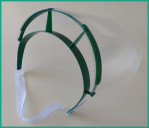
Personal protection products made with high plastic recycling content (all green parts) Other parts still work in progress
OCEAN (and EAR) SAVERS
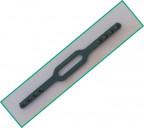
Product made with 100% recycled plastics from the maritime industry (obsolete fishing gear and ropes)
AMS Startup Booster

The AMS Startup Booster is now open for applications. Do you have a cool, innovative solution that can tackle the challenges facing Amsterdam? Then apply now for the AMS Startup Booster. A 4 month program that will help you with the 1st steps in starting your business.
for more info: https://www.ams-institute.org/news/ams-start-booster/
or contact Marije Wassenaar, marije.wassenaar@ams-institute.org
TALENT DISCOVERY IN THE AGE OF SMART CITIES

At a time of accelerated growth and ubiquity, connectivity technologies like AI and quantum computing allow us to find ourselves anywhere quickly. The most important question to ask is therefore where exactly do we want to be.
https://www.youtube.com/watch?v=9eihAOW6CR8
Some platforms know exactly what series you would like to watch today based on your previous preferences and when to display you an advertisement for a baby chair before you even know that you need one. Imagine that a city knows for you and in real-time who is worth meeting so that you can develop as an expert, and which team needs your key competencies so that you can be hired immediately.
https://www.youtube.com/watch?v=DNNF4iw44r8
As we are more conscious of ourselves and our goals, the world is responding to our actions with more synchronicity. It is one basic and very old knowledge based on the concept of the subconscious and selective perception. What’s more, psychology elaborates that the main factor of satisfaction with a certain situation is the set of relationships with the environment and people that suit us best.
https://www.youtube.com/watch?v=yeg18Ej9sro
For one good relation set will be a quiet desk and a world of numbers and tables, for the other it will be an energetic communication with others towards an ambitious aim of changing the world. In separated ontologies, those types can be described and classified differently. We are diverse in so many many ways that there is no perfect system that would describe precisely what makes us unique. Nevertheless, some systems are pretty well adjusted, enough to make them a part of our language or part of smart city competencies’ platform, and even to use them to help navigate citizens through activities and events.
In my dream, cities of the future help us adapt the outside world to our deep needs. The main component of a smart city is not a network of external sensors, but a deep radar of our internal needs which looks deep into our psyche and soul. Doesn’t that fit the slogan of the technocratic city?
In our living lab in Wroclaw, we worked with young people on solutions to help them with the new labor market. We tested there the latest achievements of psychology and a new approach to motivation and interpersonal development of young students.
We used our imagination to create a city-wide game that was about defeating the mythical anti-creator by working together to develop creative skills. During the one year process we tried to answer many questions: How to apply the national qualifications framework in an accessible form? Who will be good programmers? Who will never become one? How to change thinking about the city and its role? How to recognize talents at an early stage? How can we build qualities such as leadership, commitment, and entrepreneurship?
Cities need to take immediate action towards mapping and supporting digital and future-proof competencies and approaches.
On the one hand, we helped students get to know each other better, and on the other, internalized with a multilevel transformation of the external world. We used to work on paintings, create our own icons, debate with experts. We also required communication of our own interpersonal discoveries. We created personal websites, business cards, and team presentations. It helps us (and the platform) to understand each one's unique feature and potential roles.
The final stage was to create a small project as a team for one of the local companies or an NGO. Communication with a peer group was just as important as the flow of information with the career adviser and mentors platform. We set up the framework of internal game paths of development and individual competencies.
In the future, artificial intelligence can also be an important player in the ecosystem, so we need to communicate our needs and intentions understandable for its language so that it can help in suggesting the path to achieving our personal goals. We discover that badges and icons can be a great tool to build a common language between different actors. The results of the project evaluation gave outstanding results. Over 60% of people felt closer to the group, which is a good help in the circumstances of growing alienation in the digital and mobile world. Most participants realized their own needs and dreams and made the first step to fulfill them. At the end we replicated and simulated talks with future employer HR, to give a chance to newly acquired competences Our model has been recommended for implementation across the country. However, I feel that hardly anyone in the technology sector understands the importance of soft technologies in the ecosystem of an intelligent country and city.
Even if it is underlined in the newest digital strategies for the EU there is no solution to support mass talent evaluation and constant mapping process. The core element of the Smart Cities Polska vision and strategy is to build smart cities on social capital and supporting it by delivering digital tools for competencies diagnosis and places for meetings and collaboration.
The next stage of our journey will be to conduct an experiment with our living lab on a larger scale and improve the technologies behind the group management and development processes of joint projects. Our new team members will be experts in artificial intelligence, bots, and e-learning platforms. We also want to start international cooperation, hence the translation of our working method into Russian and English.
What I have learned about myself during the project:
The test confirms that I am a participant characteristically (Factor S’) so I want to participate in culture and values, and a technician personality (Factor V’) so I want to gain the know-how to act efficiently. Temperamentally, I am averse to the group (Factor -O) and matter (Factor M) so I act as an independent analyst.
Does my current work fulfill my personal relationship needs?
The role of the coordinator of teams dealing with the development of systems for cities is in line with my social and technical needs. I work on both theoretical models and on occasionally while networking with people. In a living lab environment, I can work with young people so I can meet and recognize my participation needs.
This is a good predictor of satisfaction and harmonic career. Everyone is different, and we need to know how to team up in new teams in a very fast manner by using one language and methodology linked with AI This self-knowledge is enough to precisely match potential roles in the ecosystem and team behavior.
Using the latest methods, it takes less than 15 minutes to see myself structure with great precision. It is easier than quantitative tests based on questions like popular methodology DISC or MBTI, although the results are correlated.
If you would like to improve your city with talent discovery and competencies mapping tool please ask me how we can cooperate: mateusz.jarosiewicz@smartcitiespolska.org
Previously appeared on: https://scgn.smartdubai.ae/social/2020/09/03/mateusz-c0324d40-a052-4503-a113-dfbb12ce3212
Looking for innovations that can help businesses in hospitality to manage occupancy and distancing
Do you have an innovation that can help limit the number of people in shared bathrooms? I.e. a real-time display, a system with indicator lights, etc.? Or an innovation that helps people at events and meetings keep 1.5m distance?
Are you just entering the market & open to testing and showcasing this innovation in a hotel in Amsterdam?
Contact me at anke@innovationlighthouse.org
How can we help the people who lives In the slums if no budget is allocated by the government?
hi there everyone,
I am Maasoome, Master of Urban Planning, from Iran.
I work in an office in a rural area that has just joined the city (located in east north of Iran). Our job is to help the people who are living in this area to improve the social and economic situation of their lives. Unfortunately, we have faced the problem of a lack of funds to improve the economic situation of this area by the government.
Can you give me a solution or a new idea to change this situation?
The population of this range is equal to: 15560
Thanks for your attention
Global Goals Jam Amsterdam

Do you have a passion for solving social challenges to improve lives? Join us and over 85 cities around the world in the fifth edition of the #GlobalGoalsJam! This is a two day event where creative teams work together on local challenges related to the Global Goals. Using a tailored toolkit, we will create interventions aimed at short term targets in support of the long term Sustainable Development Goals.
Do you have a passion for solving social challenges to improve lives? Join us and over 85 cities around the world in the fifth edition of the #GlobalGoalsJam! This is a two day event where creative teams work together on local challenges related to the Global Goals. Using a tailored toolkit, we will create interventions aimed at short term targets in support of the long term Sustainable Development Goals.
[►
Global Goals Jam 2019
Are you ready for #globalgoalsjam 2019?! This year 20-22 September. Get your tickets for the Amsterdam Jam now: https://www.eventbrite.com/e/global-goals-jam-amsterdam-2019-tickets-66163862895
Digital Society School YouTube](https://www.youtube.com/watch?v=FmDsa0CxIuI)
The Sustainable Development Goals (SDGs), otherwise known as the Global Goals, are a universal call to action to end poverty, protect the planet and ensure that all people enjoy peace and prosperity.
In 2016, United Nations Development Programme approached Digital Society School to create a collaboration that connected the design community with the Sustainable Development Goals. Using our expertise in Design Methods and international collaboration, we designed a process that empowers people to create direct impact for the global goals, solving local challenges relevant to their own context.
> “We are very interested to see how all the ideas that come out of events such as our Social Good Summit can really take effect and make the world a better place by 2030. Our long term partnership with Digital Society School (with whom we co-founded the Global Goals Jam) facilitates a way to take real action. People all over the world can see and learn from each other’s work, as well as provide inputs across borders to create a global design community for the Global Goals.”
> Boaz Paldi – Engagement Manager United Nations Development Programme
Global
To see all global locations that are Jamming this year, and for more information on the global event, see: www.globalgoalsjam.org
Amsterdam Jam
This year, we are hosting the event in Amsterdam online. Join us and design for challenges by industry partners and get to work with our Digital Transformation Trainees, while learning how to design for sustainability and co-create in an online space!
Thursday 17 // Showcase Makersprint (time to be announced) On the Thursday before the Jam, there is the opportunity to meet your teams and get to know which challenge you’ll be working on. We have arranged an inspiring showcase on where our trainees will present the first results of their Makersprint. These are the projects that form the starting point of the Jam, so make sure you can join it! Details will be announced.
Friday 18 // Day 1 (9.30am-5pm)
9.30-10.00am – Opening Global Goals Jam
10.00-1pm – Sprint 1: Explore it!
1-2pm – lunch break
2-5pm – Sprint 2: Respond to it!
5pm – opportunity to work further and connect to other teams across the globe!
Saturday 19 // Day 2 (9.30am-5pm)
9.30-10.00.am – Check in and warm up
10.00-1pm – Sprint 3: Make it!
1-2pm – lunch break
2-4.30 – Sprint 4: Share it!
4.30-5pm – Closing
Last publication in series Looking for the humane city.
with a summary of actions and disturbing data about the impoverishment of the public sector and the enrichment of the private sector. At the time only in Dutch. English version follows soon.
Buurtbudgetten: enthousiasme, maar ook frustratie

De gemeente Amsterdam werkt aan democratische vernieuwing vanuit de overtuiging dat bewoners zelf het beste weten wat er speelt in de buurt en waar behoefte aan is. Een van de methoden waarmee geëxperimenteerd wordt, is de inzet van buurtbudgetten. In het leerprogramma ‘Amsterdammers, Maak je stad!’ deden Kennisland, Pakhuis de Zwijger en Waag onderzoek naar deze buurtbudgetpilots en recent deelden we de resultaten in een livecast. Wat leert de eerste editie buurtbudgetpilots ons voor de volgende stap naar meer eigenaarschap, zeggenschap en cocreatie in de stad?
In het coalitieakkoord 2018-2022 ‘Een nieuwe lente en een nieuw geluid’ geeft het College van B&W van Amsterdam aan democratisering als een van de speerpunten te zien in de huidige bestuursperiode. De doelstellingen van democratisering zijn het vergroten van het eigenaarschap en de zeggenschap van bewoners en het vergroten van het vertrouwen van bewoners in de gemeente. In dat kader is de gemeente gestart met buurtbudgetten.
De pilots met buurtbudgetten zijn in 2019 in de stadsdelen Noord, Nieuw-West en Zuidoost van start gegaan. De stadsdelen hebben, aangevoerd door hun eigen teams Democratisering, zelf ingevuld op welke manier de budgetten verdeeld worden, waarbij rekening is gehouden met de lokale context van de buurt. In deze drie stadsdelen is met verschillende modellen geëxperimenteerd, van online stemmen tot deliberatieve werksessies.
Reflecteren op alle niveaus
Het huidige stadsbestuur heeft met haar democratiseringsagenda een stevige ambitie neergelegd en is voortvarend aan de slag gegaan met de pilots met als doel om straks in heel de stad met buurtbudgetten te werken. Vanwege deze ambitie is het belangrijk om de participatie van bewoners niet alleen op de korte termijn vorm te geven in experimenten, maar deze nieuwe vormen van participatie en een daarbij passende werkwijze – ook daadwerkelijk in het beleid te verankeren. Dat betekent dat er tijdens de pilots geleerd en gereflecteerd moet worden op alle niveaus: in de praktijk, maar óók ambtelijk en bestuurlijk.
In oktober 2019 zijn Waag, Kennisland en Pakhuis de Zwijger, in samenwerking met en in opdracht van de gemeente Amsterdam daarom van start gegaan met het leerprogramma ‘Amsterdammers, Maak je stad!’. Afgelopen 9 juni presenteerden wij de onderzoeksresultaten van dit leerprogramma in een online bijeenkomst vanuit Pakhuis de Zwijger. We gingen met verschillende betrokken bewoners, ambtenaren en de betrokken wethouder Democratisering Rutger Groot Wassink in gesprek rond de centrale vraag: ‘Wat leert de eerste editie buurtbudgetpilots ons voor de volgende stap naar meer eigenaarschap, zeggenschap en cocreatie in de stad?
Behoefte aan heldere kaders en duurzame samenwerking
In het eerste deel van de bijeenkomst deelde het Maak je Stad!-team de resultaten van het onderzoek naar de eerste ronde buurtbudgetten in Nieuw-West, Zuidoost en Noord. Hieruit blijkt dat zowel bewoners als ambtenaren met heel veel enthousiasme aan de pilots zijn begonnen, maar dat het proces ook veel frustratie heeft opgeleverd. Zo ontbraken belangrijke kaders rondom doelstellingen, rolverdeling, samenwerking, financiering en communicatie bijvoorbeeld. Aan de hand van verhalen van actieve bewoners, lokale democratiseringsprojectleiders en stadsdeelbestuurders werden deze thema’s geïllustreerd en besproken. Zo deelde een van de actieve bewoners in Nieuw-West, initiatiefnemer van Schoon Plein ‘40-’45 haar ervaringen met het buurtbudget:
> “Het enthousiasme van de buurt is groot. Iedereen wil graag een schoon plein. Maar we kijken ook naar de gemeente. De schoonmaak is nog altijd een primaire gemeentelijke taak, maar de samenwerking met de gemeente blijkt complex. De uitdaging is om elkaar te helpen om een schoon plein te realiseren. […] Ondanks het enthousiasme van bewoners en de mogelijkheden die het buurtbudget ons geeft, is het opmerkelijk dat de kosten die we maken tot nu toe door de initiatiefnemers is voorgeschoten. Hier heeft de gemeente helaas nog geen procedure voor opgezet.”
Het Maak je Stad!-team deed een oproep voor het gezamenlijk creëren van heldere doelstellingen en kaders, een duurzame samenwerking tussen bewoners en ambtenaren en het niet te snel afrekenen op resultaten:
> “We hebben gezien dat het van belang is om samen met bewoners belangrijke kaders en afspraken te maken rondom de doelstellingen, rolverdeling, samenwerking, financiering en communicatie van en rondom buurtbudgetten. Maar ook in zo’n stadsbreed kader moet ruimte blijven bestaan voor lokaal maatwerk in de verschillende stadsdelen, omdat de behoeften van bewoners in elke buurt verschillen.”
Op naar een duurzaam lerend netwerk
In het tweede deel van de bijeenkomst keken we samen met Rutger Groot Wassink, wethouder Democratisering en Jacqueline van Loon, directeur van !Woon, vooruit. Hoe kunnen we geleerde lessen meenemen in het vervolg van de buurtbudgetten? Hoe zorgen we voor een duurzaam lerend netwerk in de stad dat samenwerkt aan democratische vernieuwing?
Zowel Van Loon als Groot Wassink pleitten tijdens de bijeenkomst voor meer eigenaarschap en zeggenschap bij verschillende groepen bewoners over het proces van het buurtbudget. Willen we het buurtbudget verdelen door middel van een challenge, door online stemmingen, door het organiseren we overlegtafels of geven we het buurtbudget aan een bewonersplatform? Betrek bewoners dus vanaf het begin en laat hen meebeslissen over hoe het buurtbudget georganiseerd moet worden. En niet pas op het moment dat de wijze waarop bewoners mee kunnen doen al is bedacht. Dit is ook een van de aanbevelingen vanuit het leerprogramma Amsterdammers, Maak je stad!
Groot Wassink gaf aan dat het stadsbestuur de pilots juist gestart heeft om ervan te leren, en bewust veel ruimte heeft gegeven aan allerlei verschillende vormen in de verschillende stadsdelen, zonder al te veel kaders. “Ik heb mensen uiteraard niet bewust willen frustreren, maar het is wel fijn dat we nu zien waar we tegenaan lopen als gemeentelijke organisatie.” De schuring die dit de afgelopen periode heeft opgeleverd en de inzichten uit het onderzoek en het leerprogramma Amsterdammers, Maak je stad! vormen belangrijke input voor een stedelijk kader met richtlijnen voor het buurtbudget dat de gemeente eind 2020 gaat opstellen.
Het volledige onderzoeksrapport met alle resultaten van het leerprogramma wordt binnenkort gepubliceerd. Neem voor meer informatie contact op met Dave van Loon (dl@kl.nl) of kijk op: https://www.kl.nl/nieuws/buurtbudgetten-enthousiasme-maar-ook-frustratie/
PSYCH-IT 4 – DESIGNING MEDIA FOR HUMAN NATURE

The Corona Format: One hour – Live at Youtube – English – 100% Awesomeness
We keep developing new forms of media: synthetic media such as deepfakes and virtual influencers, and intelligent IoT devices that create smart environments which communicate information to us. In this Psych-IT’s hour of power we will explore how we can design media in accordance with our illustrious human nature!
The reason why TikTok and Instagram stories work, is because it enables us to play a better act. These media connect to our playful human nature. Research Director Menno van Doorn views these platforms as stages for our performances, but this is not an escape from ‘real’ life. “Life itself is a play, as described by the great sociologist Erving Gossman in his The Presentation of Self in Everyday Life”.
Menno will discuss the findings of the new VINT report he is working on, titled ‘Playing with Reality’. A follow-up of his book ‘Me the Media’ which was published in 2008. His story will be about why new media and the human brain are a perfect match and how organizations should deal with this. He is anxious to hear your ideas and responses.
Industrial designer Mariana Pinheiro will share her vision on redesigning media in order to match our human nature. Should the smartphone be deconstructed into a smart environment? “Designing media, both digital and physical, means designing possible behaviors, shaping how humans interact with each other and with their environment. What happens when we use Design Thinking and technology to augment even more the way we communicate and the way technology communicates with us?”
Mariana will share her vision for the future based on her experience designing IoT products that have the purpose to augment our human senses.
Green Light Experience
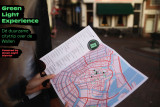
Ontdek deze zomer de groene hotspots in het Green Light District met de Green Light Experience. Ga op expeditie langs de leukste lokale ondernemers en duurzame pareltjes in de oude binnenstad. De tourist traps sla je over, want jij gaat voor lokaal gebrouwen biertjes, duurzame producten van hennep en single origine vegan chocolade!
Met de aankoop van je ticket steun je lokale, duurzame ondernemers, en ontvang je op verschillende locaties in de oude binnenstad bijzondere hapjes, drankjes en duurzame producten.
Heb je vragen? Any questions?
Mail naar <info@greenlightdistrict.nu>
The experience information is in Dutch, but of course you can walk the experience as well!
Discover this summer the green hotspots in the Green Light District with the Green Light Experience. Go on expedition by local sustainable entrepreneurs in the oldest parts of Amsterdam city centre. No tourist traps for you! You go for local brewed beers, sustainable products of hemp and single origine vegan chocolade! Your ticket supports the local, sustainable entrepreneurs and you will get special bites, drinks and other sustainable product on different locations during the experience.
Futureproof. Support a future for Amsterdam makers
Futureproof is a follow-up to the ‘Snelloket for Corona Projects’ that the Amsterdam Funds for the Arts (AFK) launched in April this year in collaboration with the municipality of Amsterdam (Art and Culture, Digital City, Event Fund). €300,000 was made available and this budget was spent in no time.
That is why AFK once again made budget available to re-open its digital ‘Snelloket’ counter. However, this is not enough and that is why AFK now appeals to the valiancy and compassion of all culture lovers and everyone with a heart for Amsterdam.
The Amsterdam Fund for the Arts is a unique city fund. It has been committed to contributing to a diverse and vibrant cultural climate in the city of Amsterdam since 1972. The AFK has never called on the public to contribute. Up until now.
Due to the emergency in which many visual and performing artists currently find themselves, we are compelled to act. We are determined to offer Amsterdam and its makers more perspective.
INVEST IN OUR FUTURE. TOGETHER WE MAKE AMSTERDAM AND ITS MAKERS FUTURE-PROOF
Looking for entrepreneurs
Having spend a decade researching microbial barrier coatings that address surface sanitation challenges, I'm delighted to now look for distributors who are seeking eco-friendly products and services to enhance the urban environment. See www.ingeniatouch.com for details.
International monitor of urban approaches dealing with COVID-19
Every two weeks the City of Amsterdam publishes a monitor on urban measures to deal with COVID-19. Different issues are discussed, depending on the questions we receive from within the municipal organization. It is aimed at giving a general overview of urban measures worldwide and of other information relevant for cities. It also has an overview of EU measures and of different relevant sources. Please find the 8th version of the monitor attached.
For more information about the measures in Amsterdam, please refer to this website. Earlier versions of the monitor are available through this weblink.
For any suggestions, please mail to internationaloffice@amsterdam.nl. Please refer to the same e-mail address if you would like to subscribe to this mailing.
Urbact Civic eState and the Amsterdam Whole Commons Catalog
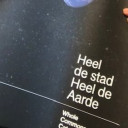
In the Urbact Civic eState project Amsterdam works together with several European cities to locally adopt progressive policies on the urban commons. As a first step the Amsterdam Foundation Onschatbare Waarde ('invaluable value’), together with Amsterdam commons initiatives, made the beautiful catalog Heel de Stad, Heel de Aarde (the whole city, the whole earth) during the past 6 months. A guide with all kinds of tips and tools, ideas and projects, people and books for everyone who is or wants to work collectively.
Heel de Stad, Heel de Aarde is inspired by the Whole Earth Catalog. Like in the original Whole Earth Catalog, experts and doers share reviews of all kinds of books and practices. The Catalog - in short - shows the positive and practical ways in which we can shape the future and shows that we not only have to look at the government or the market, but also start ourselves: in commons!
The Catalog is available online in Dutch via http://heeldeaarde.net - and you can also request one hard copy (with poster). And via https://wijamsterdam.nl/verhalen/lege-supermarkt-ga-naar-het-voedselbos you will find an interview with Natascha, the editor in chief, and a short introduction video about the commons in Amsterdam.
<http://heeldeaarde.net/> and <https://urbact.eu/civic-estate>
[►
Heel de aarde, heel de stad
Whole Commons Catalog
Gemeente Amsterdam Vimeo](https://vimeo.com/434468746)
Professor Eveline van Leeuwen appointed as new Scientific Director AMS Institute
Eveline van Leeuwen, Professor of Urban Economics at Wageningen University & Research and international expert on spatial economics, has been appointed as Scientific Director of Amsterdam Institute for Advanced Metropolitan Solutions (AMS Institute). The appointment by the board of AMS Institute is effective as per September 1st.
ONLINE AMS Summer School - Urban Living Labs
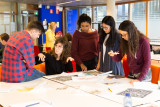
Build your knowledge & skills on the Living Lab approach during the online AMS Summer School 2020. This year's Summer School focuses on challenges brought forward by Amsterdam: Quay Walls and Bridges, Future Proof Assets and Positive energy Districts.
The challenges facing cities around the globe are complex and multidisciplinary by nature. Attempting to solve them in conventional linear ways is insufficient for addressing these manifold human-environment relationships that are at the heart of these challenges. Alternative approaches are necessary; ones that acknowledge the need for distributed problem-solving capacity and infrastructures for multi-stakeholder collaboration that incorporate local knowledge and practices.
AMS Institute is leading the way to develop, test, use, and train on Living Lab approaches. One of the forms in which to transfer knowledge and experience is in our Summer School.
This year we, focus on challenges brought forward by Amsterdam: Quay Walls and Bridges, Future Proof Assets and Positive energy Districts.
What are Urban Living Labs?
Urban Living Labs are environments for different stakeholders to explore and experiment together on solutions for complex urban challenges. The goal within Living Labs is to make impact by developing new products on a small scale – be it an object, a service, a technology, an application, or a system – and to find solutions that can be implemented on a larger scale. This is done in a real-life and co-creating setting in which different stakeholders give shape to the innovation process. The actors are users, private and public actors, as well as knowledge institutes. In essence, it is a methodology to help the collaboration and the structuring the content of an explorative process.
What you will get
You will learn to understand what a Living Lab is and when it can be of added value to start one. You’ll also gain hand-on knowledge on what is needed to have a successful start, and how to deal with issues such as stakeholder involvement and citizen empowerment.
The summer school will challenge you to work with a new mindset, build a new network of professionals and academia. It gives you the opportunity to be a part of the next steps towards the future of one of Amsterdam’s key projects.
During the summer school, we will help you solve the real-world challenge you bring with your team.
What we will do During the week you will work in a team of 5 participants on a pre-defined real-life case. The Urban Living Lab Summer School consists of lectures, online co-working sessions, trainings, and real-world interventions. It will tap into theoretical frameworks of Living Lab methodology, process tools to help deliver a plan of approach and deploy teamwork on a real-life case. It will focus on your own learning goals for reinventing cities of tomorrow. The mix of participants (Academic Researchers, Public Professionals, and Company Innovation Managers) generates new insights and perspectives on the challenges by cocreating solutions together.
Requirements for participation
As a participant,
- you are a professional with minimal five years of experience in the field of urban challenges;
- or you are involved as a PhD or Postdoc in urban challenged research projects
- you identify with themes like urban circularity, mobility, energy, food systems, climate resilience and digitization;
- you strive for sustainable, innovative and just solutions;
- you are looking for different ways to tackle urban challenges;
- you are inclined to learn, collaborate and co-create from different perspectives.
Challenges: Quay Walls and Bridges, Future Proof Assets and Positive energy Districts
Target Group: Academic Researchers, Public Professionals, and Company Innovation Managers
Form: lectures, interactive online sessions with personal learning goals and team challenges.
Language: English
When: 17-21 August 2020
Where: Online
Costs:
PHD regular price €500; 2020 edition special price €300
PROFESSIONALS* regular price €2000; 2020 edition special price €1500
TEAMS please contact us for a special package deal
* AMS Institute partners please contact us for our partner prizes.
Application
The application deadline is July 20th 2020. The application should include full name, email address, cell phone number, organization/university- faculty, function, CV. The application must include a motivation letter. Send the application to events@ams-institute.org
Stay up to date
Get notified about new updates, opportunities or events that match your interests.

